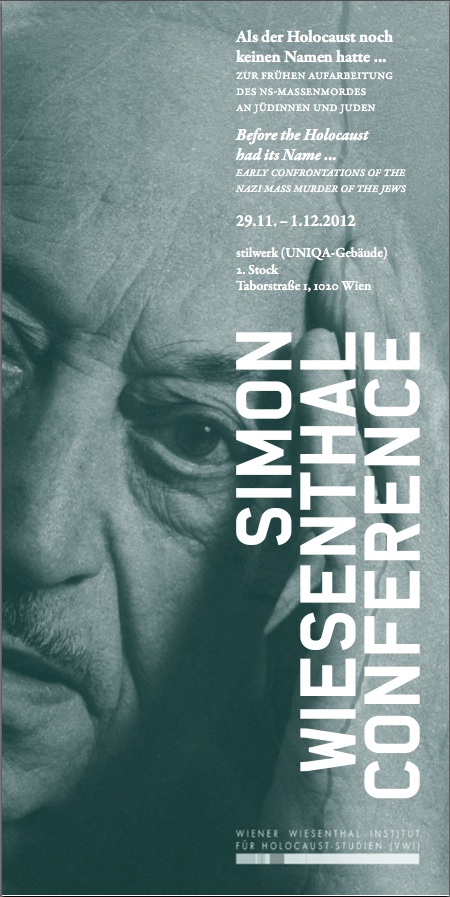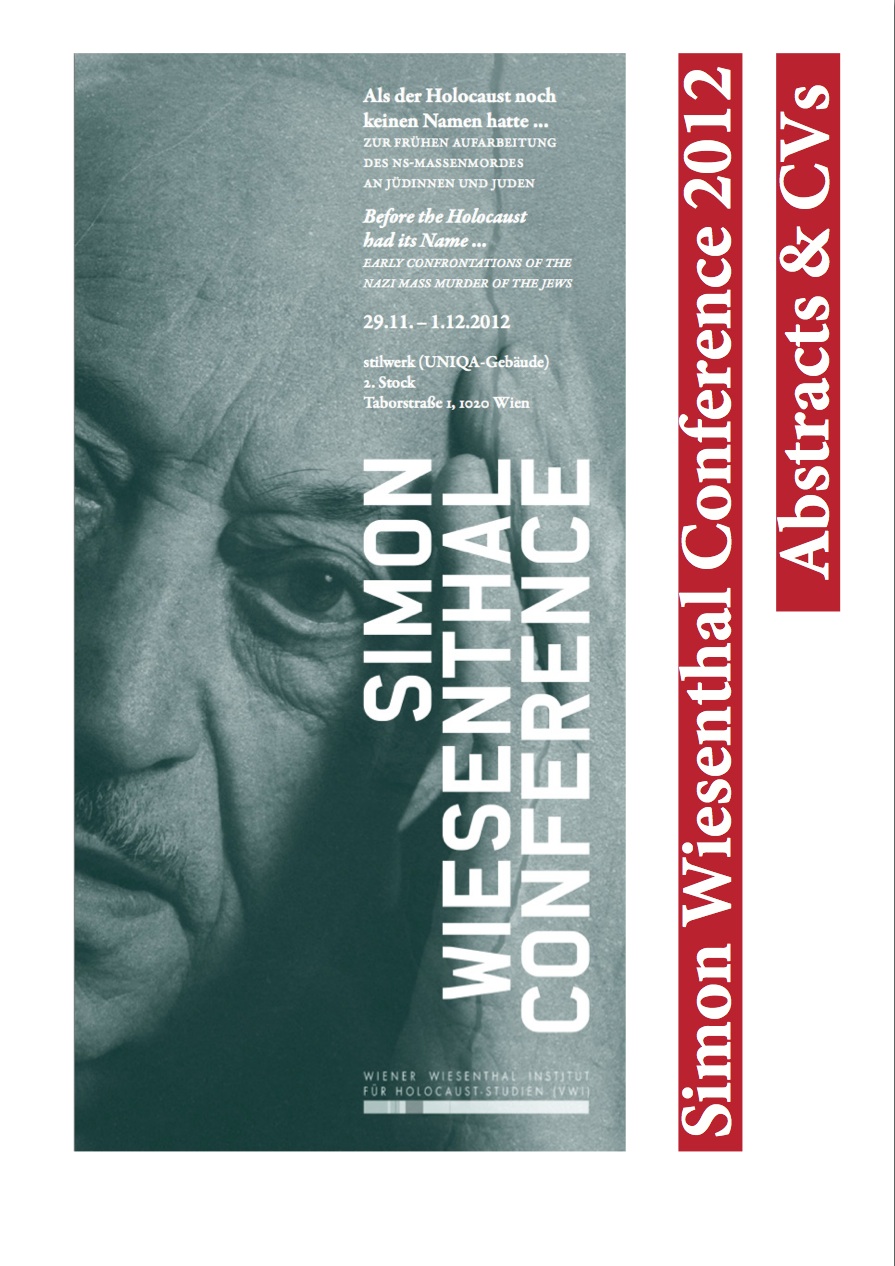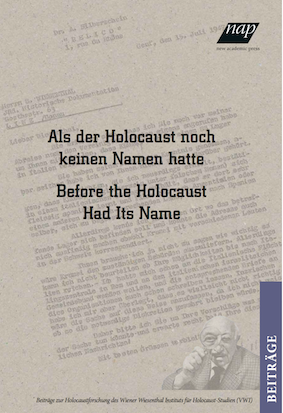Simon Wiesenthal Conferences
As it was still being established, the Vienna Wiesenthal Institute for Holocaust Studies (VWI) already organised two large international conferences: In June 2006, it held the conference “The Legacy of Simon Wiesenthal for Holocaust Studies” at the International Research Centre for Cultural Sciences (IFK) and in June 2007 the conference “Labour and Extermination” at the Wiener Arbeiterkammer (Vienna Chamber of Labour). In October 2011, the Simon Wiesenthal Conference series was continued with the topic “Scores of Commemoration: The Holocaust in Music” at the Vienna University for Music and Performing Arts.
Beginning in 2012, a three-day “Simon Wiesenthal Conference” has been held every year, in English and German. As with the Simon Wiesenthal Lecture series, the conference topics cover the entire range of topics in international Holocaust research, with a new focus each year. The topics are chosen in collaboration with the International Academic Advisory Board. The calls for papers are posted in the usual forums and are primarily aimed at attracting young, ambitious researchers from across the world. Established, internationally renowned scholars are invited to hold key note addresses or concluding and evaluating talks. Thus, the interested public in Vienna are given access to presentations and discussions of the most recent research insights.
The conference proceedings are published each year in a dedicated series of VWI publications, the so-called VWI-Beiträge zur Holocaustforschung, in English or in German.
| Simon Wiesenthal Conference | |||
| SWC 2012: "Als der Holocaust noch keinen Namen hatte ... Zur frühen Aufarbeitung des NS-Massenmordes an Jüdinnen und Juden" | |||
from Thursday, 29. November 2012 - 10:15 stilwerk (UNIQA-Gebäude) 2. Stock Taborstraße 1, 1020 Wien
|
|||
In Memoriam Karl Stuhlpfarrer (1941 – 2009)
Die Simon Wiesenthal Conference 2012 fragt nun nach den Bedingungen und dem Umfeld der konkreten politischen Maßnahmen, Gesten und Äußerungen, das begangene Unrecht unmittelbar nach dem Krieg als solches anzuerkennen, sich ihm zu stellen: Welche Versuche gab es, den Massenmord zu thematisieren, ihn zu dokumentieren, der NS-Vernichtungspolitik zu gedenken und Verantwortlichkeiten zu klären, ja ihn zu „bewältigen“, die „Schuldfrage“ zu stellen? Wie interagierten nichtstaatliche vergangenheitspolitische Akteure mit der Politik, welche politischen Interessen verbanden sich mit den Bemühungen, die Vergangenheit auf- zuarbeiten, wie(so) sind sie gescheitert, ab wann sind erste Tabuisierungstendenzen festzumachen, und aus welchen Gründen erfolgten sie? Dabei wird der Einfluss sowohl internationaler Akteure als auch außenpolitischer Überlegungen auf die Auseinandersetzung mit der Vergangenheit beleuchtet, aber auch erörtert, ob es schon vor Beginn des Kalten Krieges markante Unterschiede im Umgang mit der unmittelbaren Vergangenheit zwischen West- und Osteuropa gab. Insgesamt wird die Rolle verschiedener vergangenheitspolitischer AkteurInnen diskutiert und damit die Vorstellung von einer „Vergangenheitspolitik als Ausdruck linearer Kontinuitäten und homogener Meinungen“ in Frage gestellt und Vergangenheitspolitik als Realpolitik erkennbar. Idee und Konzept: Regina Fritz (Wien) und Béla Rásky (Wien)
The Simon Wiesenthal Conference 2012 will address the conditions and contexts of concrete political measures taken, gestures and statements made immediately following the war in order to confront and acknowledge the wrongs committed: What attempts were undertaken in order to make public the mass murder, document it, remember the genocide and define responsibilities, to "overcome" and ask the "question of guilt"? How did non-state actors engaged in the politics of confronting the recent past interact with the political actors? Which political interests were tied up with the efforts to confront the past? Why and how did these efforts fail? When can the first tendencies to create a taboo around the subject be detected? What were the reasons for this? The influence of international actors and considerations of international politics on the way the past was dealt with will be illuminated; and we will ask whether the differences between Western and Eastern European treatment of the immediate past predate the Cold War. The roles taken on by different agents engaged in forming the policies of how to deal with the past shall be discussed, calling into question the idea of a "Vergangenheitspolitik as an expression of linear continuities and homogeneous opinions", revealing the degree of Realpolitik inherent to it. Idea and concept: Regina Fritz (Vienna) and Béla Rásky (Vienna)
Konfernzband SWC 2012 Fritz, Regina; Kovács, Eva; Rásky, Béla (Hrsg.) Rezensionen:
|
|||













